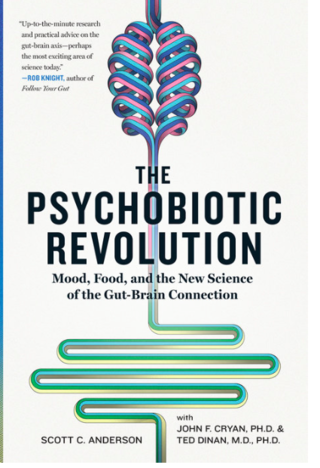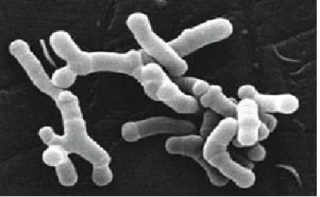Health
The Psychobiotic Revolution
A new book by Scott C. Anderson details the microbiome and the brain..
Posted March 25, 2018

Studying and changing the microbiome to affect health has become the newest frontier of medicine, both via legitimate, evidenced-base practices and some quackadoodles cashing in on the latest fad. It can be difficult, when perusing one's Instagram or Twitter feed of magical gut modifications, to figure out what is good science and what is plain old snake oil.
I've been trying to figure out the whys and wherefores of the gut brain connection for years, and there was a time I was able to keep up with the scientific literature. Some of my prior blog articles include:
The Gut-Brain Connection, Mental Illness and Disease
The Cutting Edge of Gut Health and Disease
But what was a trickle of evidence even five years ago has become a fire hose, with thousands of new papers each year, and it's nearly impossible to keep up with even the major findings. That's when you have to rely not on us hobbiest science writers but the actual researchers with labs, constant contact with others in the field, and plenty of assistants to keep up with the tidal wave of science.
Fortunately, Scott C. Anderson teamed up with the two premier researchers on the brain and microbiome, John Cryan, PhD and Ted Dinan MD, PhD to write a book for the layperson, The Psychobiotic Revolution. Mr. Anderson has managed to explain some particularly difficult science about the adaptive vs. the innate immune systems and the dirty details of how H. pylori burrows into the walls of your stomach with a compelling flair and real narrative drive. You learn about how Bifidobacteria were originally found (in breastmilk) and named (they look like little "y"s), and how doctors at the early part of the twentieth century were adding it to early infant formulas to try to make them more healthy for babies. Misplaced scientific hubris and a bad roll of the genetic dice led to the tragic end of the "bubble boy", David Vetter, whose parents tried to give him a germ-free life (expecting he might get a bone marrow transplant). He died in 1984.

You are taken down the alimentary canal (less alarming than it sounds) from the bacteria that hide in the cracks between your teeth, to the uvula (it makes saliva and mucous! who knew?), esophagus, stomach and through the great bacterial swamp of the small intestine, where microbes and our immune system are forever frenemies. Along the way, links between microbiome, tooth health, placental health, and even changes in how a mom's microbiome can affect the health and psychological well-being of her offspring are explored in detail.
Finally, the authors give straight-up practical advice on the latest science of getting a head-healthy gut microbiota. Dinan and Cryan are big fans of the fibers in whole foods, and loathe simple sugars and the emulsifiers in processed foods. "Healthy gut, happy life" advice sits next to the latest about the future of fecal transplants.
You also learn how to navigate the label of a probiotic supplement and what claims are founded in evidence, and what is exaggeration or outright quackery. A warning, "Some of the probiotics available...are popular because they are easy to manufacture, not necessarily because they are efficacious." Since most (at least 2/3s) of probiotics will be killed as they travel down the gut, pay attention to numbers of "CFUs" or colony-forming units, which should be in the billions. There are still very few probiotics for which an ideal dose for a specific condition has been established.
A "psychobiotic" would be a probiotic or prebiotic supplement that would positively affect the brain, relieving or preventing symptoms of mental illness. My old blog posts (linked above) detail a lot of the prior evidence about such possibilities...the field is still wide open, and new strains of probiotics being studied all the time. Right now, there is data for many Bifidobacteria and Lactobacillus species along with Streptococcus thermophilus and Saccharomyces boulardii. Pages 165 on of The Psychobiotic Revolution detail the research, in rodents and humans and conditions for which they have been found to be helpful.
There are lists of tested brands of probiotics, useful if you don't want to completely waste your money. "One sobering study showed that out of 13 commonly available probiotics, only four contained what was claimed on the label." Fortunately, the ones I often hear recommended by GI docs, including VSL3, Align, Culturelle and Florastor all make the cut.
In short, if you want a friendly, interesting, and up-to-date read on the science of the microbiome and the brain, you cannot do better than The Psychobiotic Revolution. I did receive a promotional copy, but to be honest I get promotional copies of a lot of books and hardly ever review them...mostly because I don't have time, and book reviews aren't fun to write. But this book pushed me past my reticence, and I also respect the absolute scientific integrity of Cryan and Dinan. They are not here to make wild health claims, they are here to educate and help you get a healthy gut and a happy brain.
Copyright Emily Deans MD




